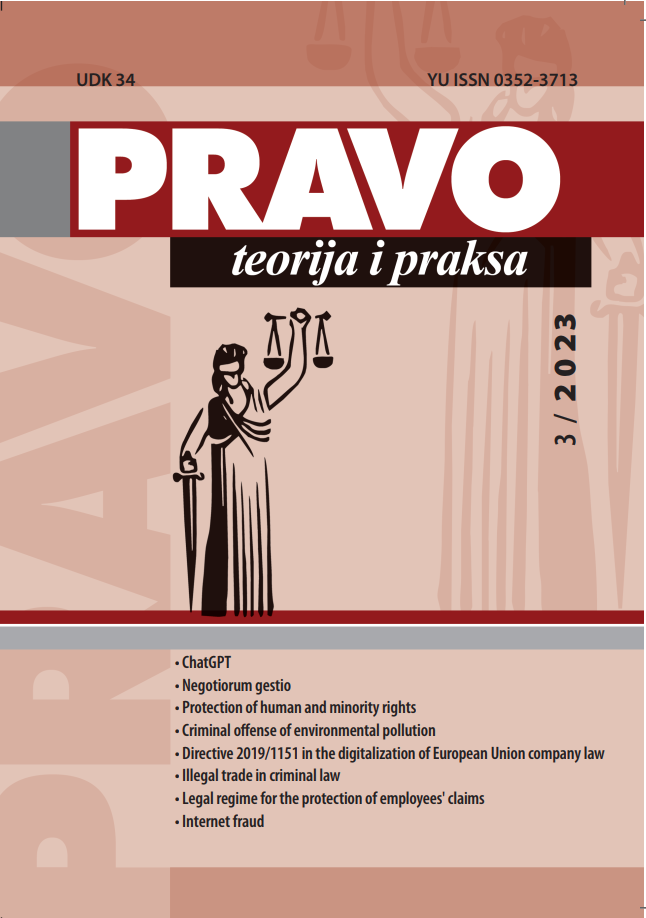INTERNET FRAUD
INTERNET FRAUD
Author(s): Jovan SrećkovićSubject(s): Criminal Law
Published by: Pravni fakultet za privredu i pravosuđe u Novom Sadu
Keywords: Internet law; criminal acts; privacy; data protection; internet fraud
Summary/Abstract: Internet law represents one of the youngest branches of law, which emerged from the need to expand the existing and create a new regulatory framework that would regulate the internet and introduce the necessary legal security and protection for its users. Internet Law or Cyber Law is largely intertwined with the Law on Information and Communication Technology, as a legal field which encompasses the regulation of contractual relations established by means of information technology, the right to privacy and data protection, freedom of speech and intellectual property, internet security, copyright on computer program codes and databases, criminal offenses arising from actions on the internet, as well as the tax aspects of online goods and services exchange. In contrast to the broader scope of IT law, Internet law refers to a narrower segment of this legal field related to the internet, regulation of internet management at all levels, management of internet domain names and IP addresses, etc. Internet law (or Cyber law), in a broader sense, encompasses those parts of the legal system and legal domains that are related to the internet and provide protection to its users. To address the issue of domain name registrant liability and determining their identity, it is necessary first to explain the governance structure of the internet and the informational and legal nature of internet domains. Although the internet is often said to be free and belonging to everyone, this complex system does not operate entirely on its own, which means that it is not perfect to the extent that its structure is fully automated. Addressing the topic of internet fraud and educating colleagues and the general public are aimed at preventing fraud. The lack of awareness about how internet scams operate continually leads to new victims, and insufficient knowledge of legal provisions and potential penalties can create potential perpetrators of this crime. When complex topics are explained in simple terms, it represents a significant step in educating individuals, both in the legal and technological aspects from a legal perspective. Such academic work should not deter people from using the Internet, nor should it present an obstacle to progress and the digitization of difficult and time-consuming paperwork obligations. Instead, the objective is to timely educate individuals so that the utilization of the digital world can be integrated into all segments of society as quickly as possible. This will facilitate the functioning of daily life, including business operations, while still remaining within the bounds of legal regulations. Therefore, it is extremely important to educate people on how to avoid internet fraud.
Journal: Pravo teorija i praksa
- Issue Year: 40/2023
- Issue No: 3
- Page Range: 115-133
- Page Count: 20
- Language: English

